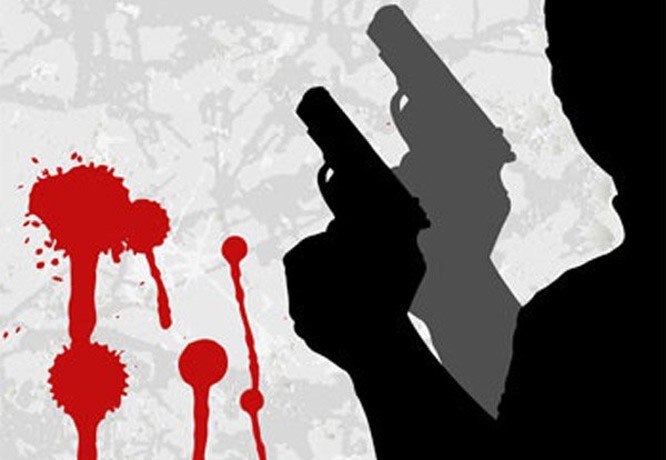
Investigations into some recent cases of ethnic and sectarian killings reveal some interesting but dangerous trends

Karachi is once again caught in a wave of political and sectarian killings and attacks, despite the progress made over the past five years in combating violence of all forms by the law enforcement agencies, especially the paramilitary Rangers.
Investigations into the cases reveal some interesting but dangerous trends. In the recent attacks on Mohajir ethnic political groups, such as Muttahida Qaumi Movement-Pakistan (MQM-P) and Pak Sarzameen Party (PSP), law enforcement agencies allege that militants loyal to MQM founder, Altaf Hussain, have been involved, alongside ‘contract killers ’ belonging to newly-formed underworld outfits. Similarly, in cases of sectarian violence, the police investigators suspect the involvement of proscribed outfits whose militants are either released on bail or are members of their sleeper cells.
Karachi has a long, bitter history of infighting between the MQM and its breakaway faction, Haqiqi. Investigations into the recent attacks on various factions of the MQM suggest the resurgence of the MQM-London, at a time when its founder Altaf Hussain is feeling exceedingly frustrated about losing a grip on the city, especially after his Aug 22, 2016 speech.
On Feb 11, six assailants riding motorbikes opened fire with sophisticated weapons, such as sub-machine guns with 9mm pistols, on a local office of MQM-P in New Karachi, killing one activist and injuring another. MQM-P MNA Osama Qadri, who was using this office, accused the South Africa Network, a term used for the MQM militants operating from Johannesburg, Durban and Gauteng in South Africa, of demanding extortion money a few days before the attack.
On Dec 25, former MQM-P lawmaker, Syed Ali Raza Abidi, was targeted and killed in DHA, Karachi. Unidentified assailants on Dec 23 attacked the PSP office in Rizvia Society, killing two party activists. At least six people were injured on Dec 9 in a hand grenade attack on an MQM-P event organised to celebrate Prophet Muhammad’s (pbuh) birthday in Gulistan-e-Johar.
Taking action, law enforcement agencies activated their intelligence wings to probe attacks on the Mohajir parties. On Feb 25, the Rangers claimed to have arrested eight suspects allegedly involved in attacks on the MQM-P and PSP. It was disclosed that Saleem, alias Belgium, who was based in South Africa, had been running the group under the direct supervision of Altaf Hussain.
"The new team of hitmen was formed in 2018 to target perceived opponents of the MQM-London and to sabotage growing political, economic and cultural activities in the metropolis," Colonel Faisal Awan, a senior Rangers official, told the media. He claimed that they were involved in failed attacks on the MQM-P and the PSP.
Among their targets were also the MQM-P leaders, especially Dr Farooq Sattar, and the party’s Feb 14 rally outside the Karachi Press Club.
Police investigators claim to have identified hitmen and facilitators in the murder of Abidi. "It appears to be a case of ‘paid killing’. That’s why it was difficult to establish the identity of the mastermind," a police officer requesting anonymity tells TNS.
Raja Umar Khattab, a senior counter-terrorism police officer, believes that some groups are hiring ‘private killers’, formerly associated with the Lyari gangs and militant wings of the MQM, to carry out assassinations.
The police investigators suspect that militants of proscribed outfits released on bail or the remaining members of the sleeper cells are involved in the four sectarian killings carried out recently. In the latest attack, unidentified men killed Muhammad Nadeem Qadri, a Liaquatabad-based leader of the proscribed Ahle Sunnat Wal Jamaat (ASWJ), near a parking plaza in Saddar. On Jan 22, gunmen riding on a motorcycle killed Mohammad Ali Shah, a Karachi government official, who was also vice-president of Shia Ulema Council, near Shahrah-e-Quaideen.
On January 18, two ASWJ members were wounded in a firing incident near Al-Asif Square in Sohrab Goth. On January 3, unknown attackers killed Fida Hussain, a shopkeeper, in Korangi’s Zaman Town. Shia leaders claimed that the victim was the father of a leader of the Imamia Students Organisation.
Khattab, who is also in charge of Counterterrorism Department’s Transnational Terrorists Intelligence Group, tells TNS that sectarian violence in the city resurfaced after a gap of two years. He says since the 1990s, Karachi is one of the hotspots of the sectarian violence in the country where various Deobandi and Shia militant outfits are active, and "the remnants of the militant outfits’ sleeper cells or militants who were released on bail are likely to be involved in the killings on sectarian grounds".
According to Khattab, arrest of Asif Chotu and Naeem Bukhari of Lashkar-e-Jhangvi and dismantling of the militant outfit of Syed Muhammad Askari Abidi in the ongoing crackdown contained the sectarian violence in the city -- "But it is still a challenge for law enforcers, it has decreased not ended."